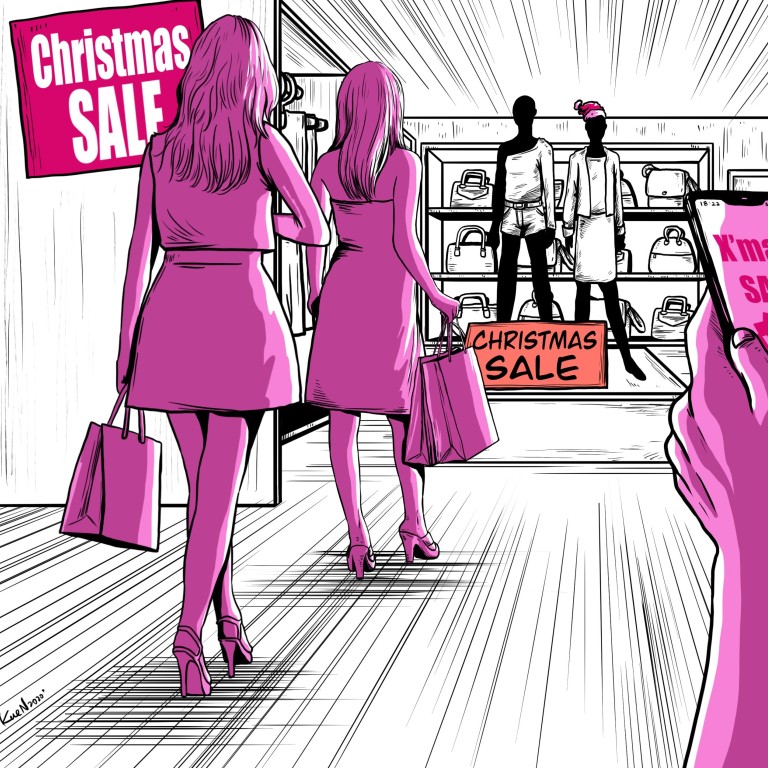
Desperate coronavirus-hit malls in Hong Kong offer Christmas discounts, K-pop stars and cash coupons
- Hit hard by pandemic, absence of tourists, malls launch year-end offers early, target local shoppers
- Chat with a Korean pop star, pick up some ‘free money’ – malls pull out the stops to draw crowds
Crowds, queues, shoppers snapping up good deals. It almost looks like the good old days. In the first of a three-part series on Hong Kong’s devastated retail and F&B scene, Denise Tsang looks at what shopping centres are doing to get locals spending again.
Pamela Tang has been returning to the sprawling Harbour City shopping centre in Tsim Sha Tsui every weekend for the past month, drawn by its “Always Rewarding” campaign that hands out cash coupons to use at stores and restaurants there.
“Every Friday, I will ring my friends to get them to accompany me so we can burn the coupons,” the 32-year-old accountant said. “But the more I shop, the more coupons I get, and it looks like I won’t be able to use them all up before they expire.”
Tang, who has been buying clothes, shoes, handbags and trying different restaurants with her friends, said: “I can easily spend HK$2,000 on each visit, and redeem HK$200 worth of shopping coupons and HK$100 dining coupons.”
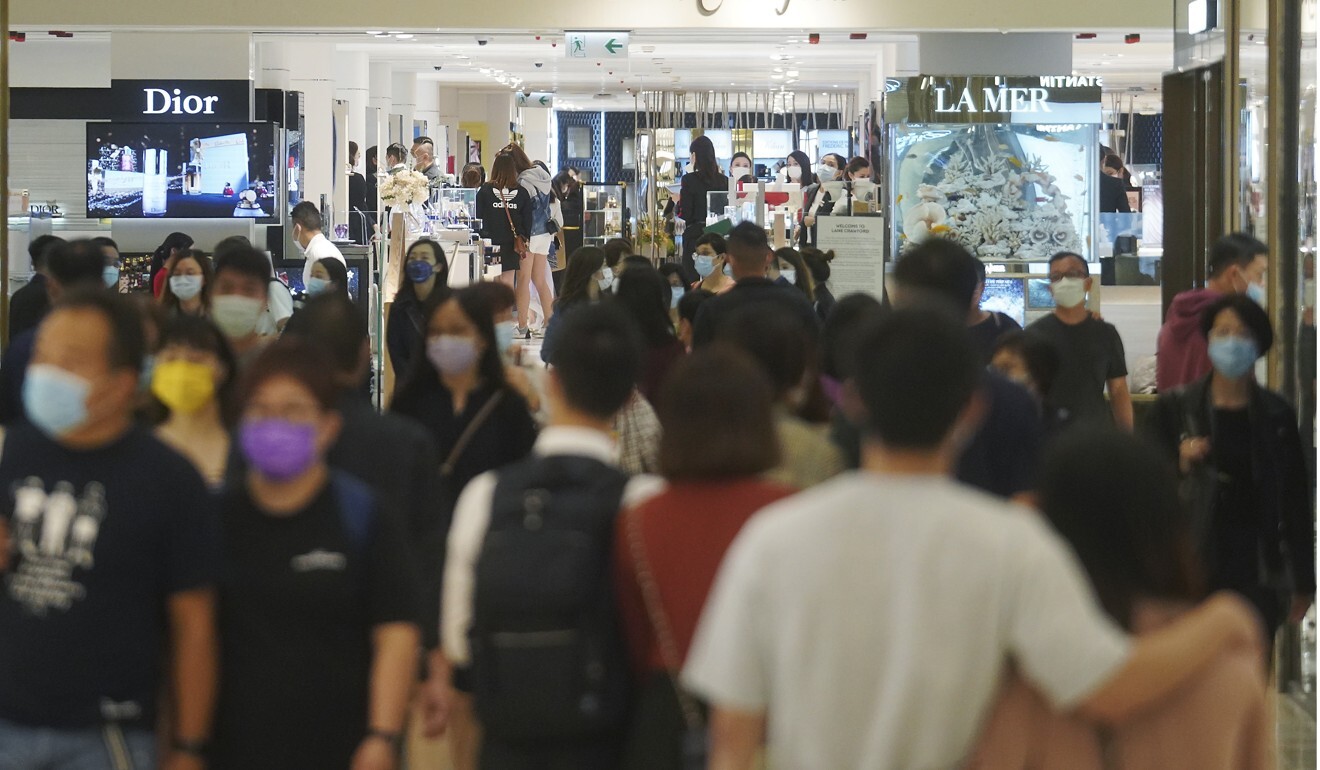
The shopping centre’s campaign began in the summer and ran into September as the Covid-19 situation eased from June. When it recorded an average of nearly 180,000 shoppers a day on the weekend of September 12 and 13, the footfall resembled Christmas Eve in better times, a spokesman said.
There were long queues when the mall offered to triple the rewards after 6pm between October 19 and November 13, in a bid to boost nighttime shopping. On the night of November 13, hundreds stood in a line that snaked around the second floor, waiting to redeem their cash coupons.
“We expect crowds will come back in the coming weeks to use up the coupons,” the spokesman said.
And after the cash coupons deal runs out at the end of this month, the mall will roll out Christmas promotions it promises will be attractive too.
Hong Kong economy forecast to shrink 6.1 per cent for full year
Hong Kong’s shopping malls hoping to end this bleak year on a brighter note began offering Christmas discounts, coupons and rebates earlier than usual to lure residents and encourage them to spend – no small feat at a time of swelling unemployment and anxieties over job security.
The malls’ main strategy was to spend less on promotions and dressing up their premises, and return the savings to shoppers via special offers, rebates and discounts, said Rudi Leung Chi-sing, founder of advertising agency Hungry Digital.
“Expect to see watered-down decorations but more perks this Christmas,” he said.
Retail sector missing mainlanders
Considered a pillar industry of the city’s economy, retail employed 273,000 people or 7.5 per cent of the working population of 3.64 million as at the end of August.
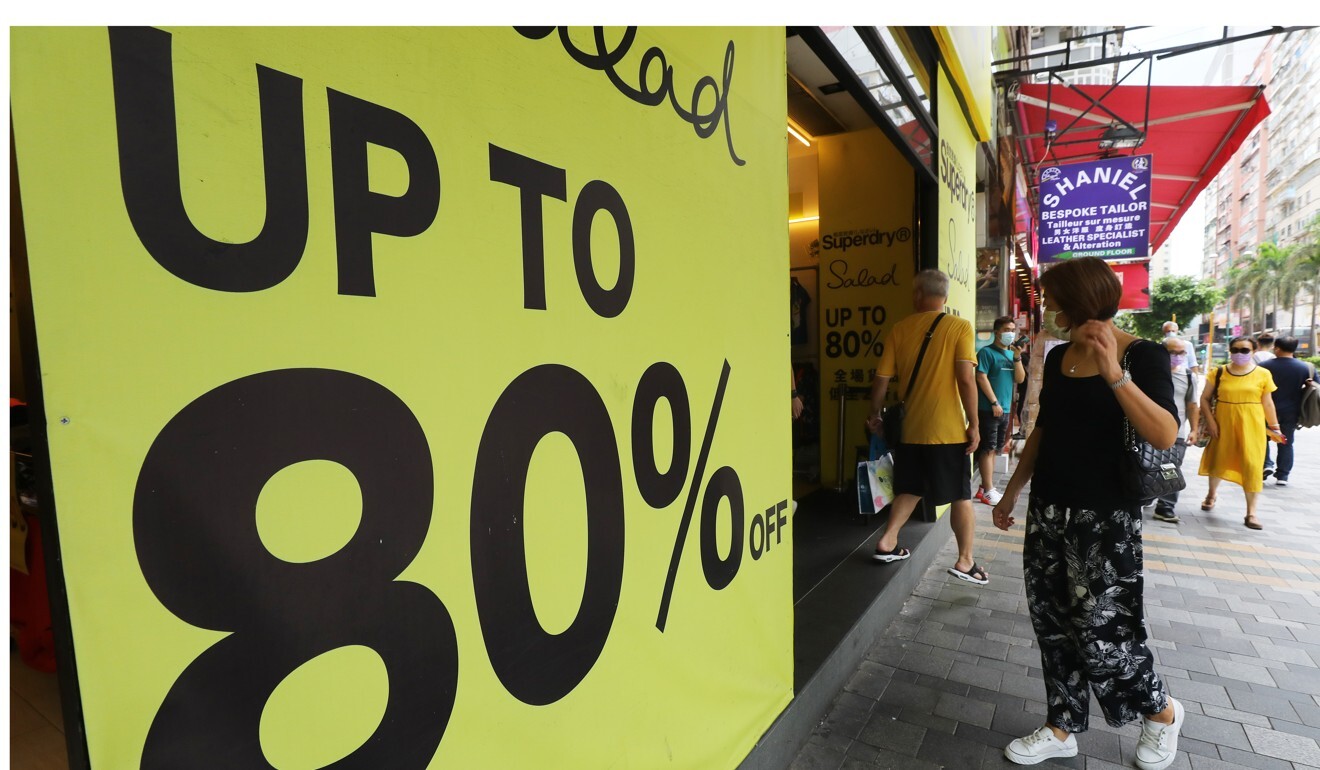
Retail sales, which amounted to HK$485.16 billion in 2018 – or an average of HK$40.43 billion per month – fell 11.1 per cent last year, then slumped 28.7 per cent through the first nine months this year as the pandemic took its toll. Monthly sales sank 12.9 per cent to HK$26.1 billion in September.
The Christmas and Lunar New Year festive seasons are normally Hong Kong’s shopping peak, with monthly sales in these periods about HK$45 billion in 2018.
Peter Shiu Ka-fai, the lawmaker representing the wholesale and retail sector, is not hopeful the situation will improve significantly over the Christmas season and even beyond.
Retailers are now racing to cut costs and even lower their shutters for good
Pointing to the fact that a third of retail sales used to come from tourists, 80 per cent of whom were mainlanders, he said: “It is not easy to fill the shortfall left by mainland shoppers.”
Tourist arrivals collapsed by 93 per cent to a mere 3.55 million in the first 10 months of this year.
Shiu is more worried about unemployment in the sector shooting up in the months to come, after the government’s HK$81 billion wage subsidies for companies end this month.
Between July and September, unemployment in retail and related industries hit a record 11.7 per cent, well above the city’s overall unemployment rate of 6.4 per cent.
“Retailers are now racing to cut costs and even lower their shutters for good,” Shiu said. “I am concerned about the impact of rising joblessness on spending.”
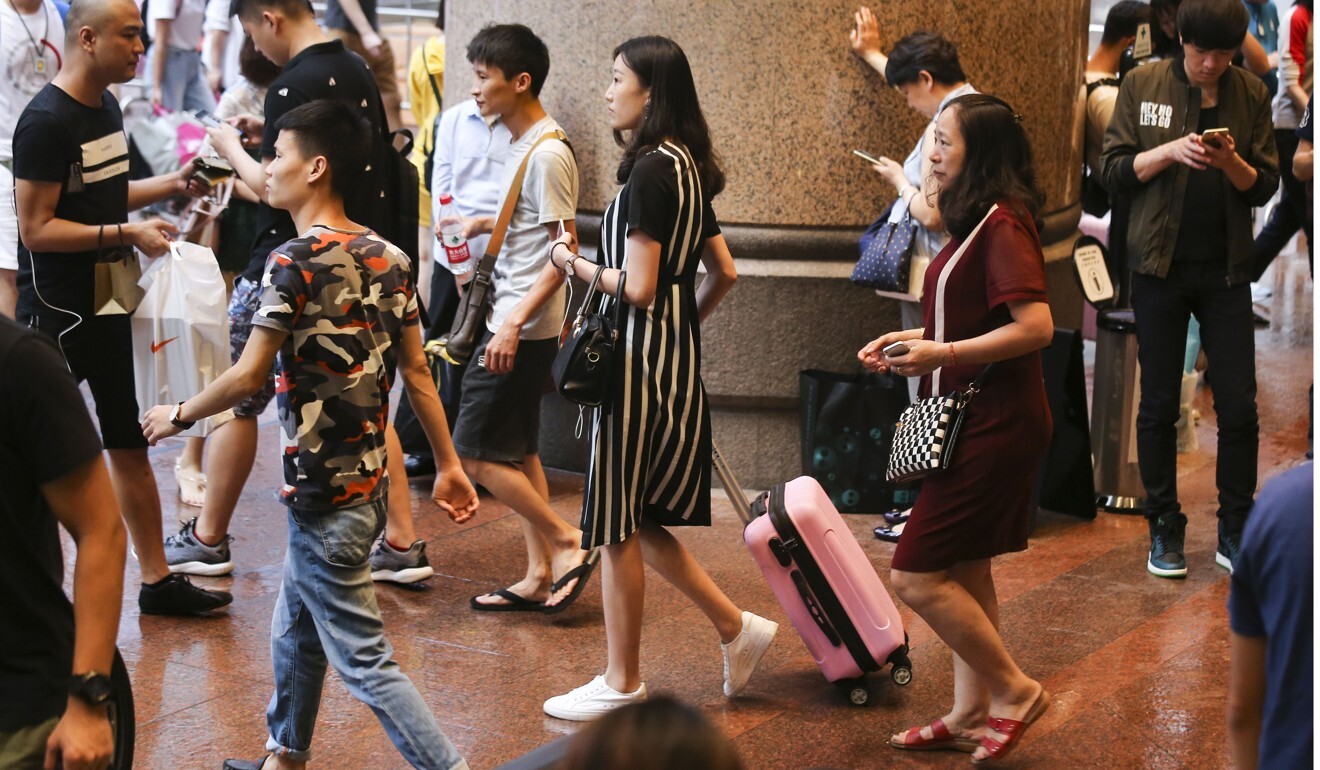
Moody’s senior analyst Stephanie Lau was not optimistic either. She expected the effects of the pandemic, including ongoing social-distancing rules, as well as economic uncertainty, would weaken retail sales by 25 to 30 per cent this year before a 10 per cent rise in 2021.
“We expect the return of tourists to be gradual even if travel restrictions are lifted,” she said.
Simon Smith, senior director of research and consultancy with Savills, said landlords and tenants would have to rely on local consumption for the time being.
“We continue to watch the economic situation with some concern as more widespread business distress and rising unemployment could undermine local spending and push any recovery out to beyond next year,” he said. “While this is a very difficult situation to paint pretty, there were some early signs of returning activity in late September and a clearer picture of the new normal is beginning to emerge.”
K-pop star Wonho, shopping draw
The crowds at Harbour City over recent weeks do not tell the whole story of change that has taken place at the massive complex which used to be a magnet for mainland visitors with its 450 stores, including luxury brands, 70 restaurants and a cineplex.
The scene today remains a far cry from the days when the year-end shopping throngs jostled and elbowed their way to their favourite shops and lined up outside eateries and cafes.
In 2018, its best year, Harbour City recorded HK$7.6 billion in retail revenue. That slipped only marginally to HK$7.5 billion last year despite the social unrest, but shrank to HK$2.8 billion in the first six months of this year.
Hong Kong jobless rate remains at 16-year high of 6.4 per cent
The mall responded by shaking up its mix of tenants and brands, adding 71 new local and international tenants including 53 retailers and 18 restaurants.
High-end Italian fashion label Valentino, bag label Coach and fashion chains Gap, J. Crew and G2000 exited the mall, replaced by newcomers including luxury brands Jimmy Choo and Cole Haan Grandshop. French brands Kilian Paris and Beracamy opened their first Hong Kong stand-alone stores in Harbour City this year.
The mall began offering cash coupons to attract and retain shoppers in September, well before the usual year-end shopping season. Like Harbour City, other malls also brought forward their seasonal shopping campaigns.
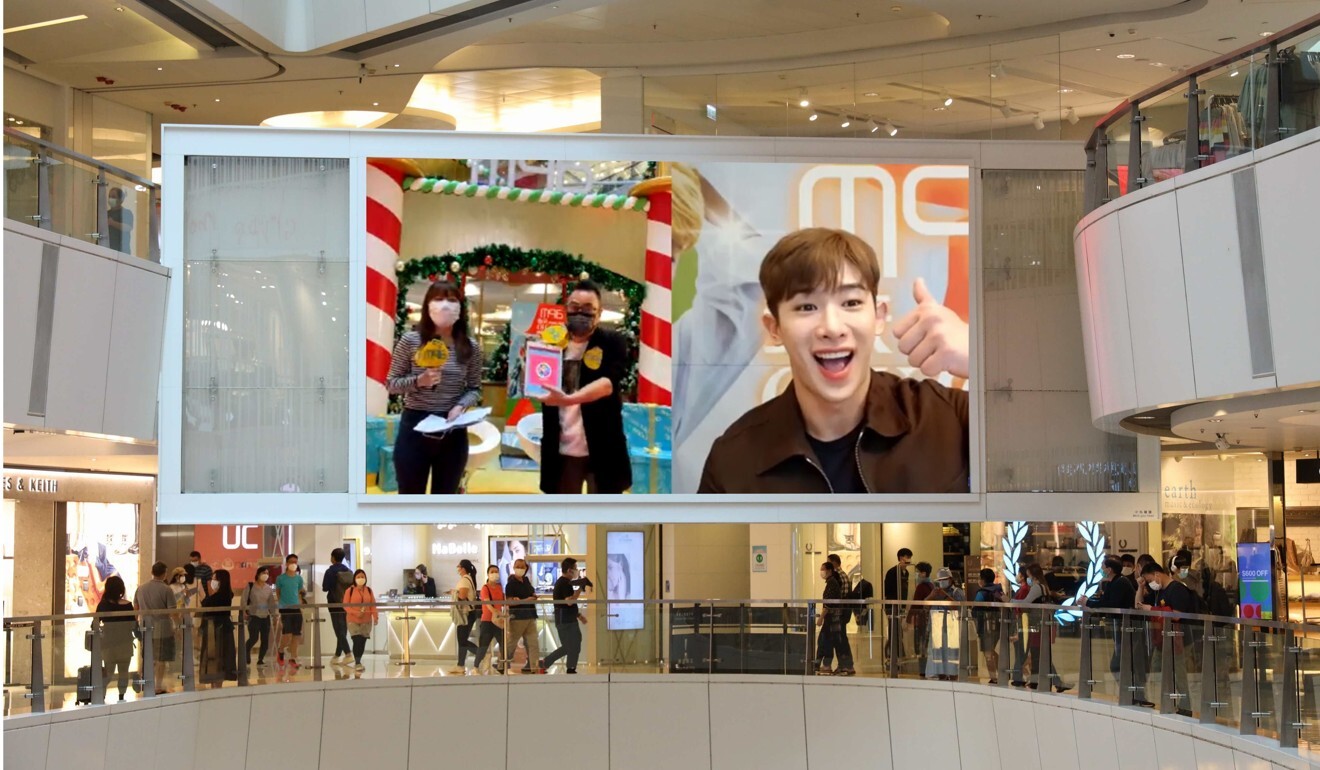
Sun Hung Kai Properties, the largest mall manager with shopping centres all over Hong Kong, including 23 large malls, kicked off its Christmas promotions in October, two weeks earlier than usual.
Most of the money it would have spent on Christmas decorations and marketing was going to shoppers as discounts and rebates this year, said Maureen Fung Sau-yim, an executive director with the group’s property management unit Sun Hung Kai Real Estate Agency.
The APM shopping centre in Kwun Tong and Tai Po Mega Mall are offering discounts of as much as 50 per cent off cosmetics as well as freebies including smartphones and jewellery worth more than HK$1 million.
Hong Kong’s taxi driver cluster grows as city confirms 4 new Covid-19 cases
Sun Hung Kai hit on a crowd-pleaser by offering shoppers who spent more than HK$500 at APM last week a chance to play online games with Korean pop idol Wonho on November 15.
The response was better than expected and nearly 300 shoppers qualified. Nine won lucky draws to play online games with the star, and six others got to chat with him for a few minutes one on one.
Fung said the event took more than three months to organise, and promised more “new and exciting” programmes in December to keep shoppers coming.
Little impact from Singapore flights
In Kowloon Tong, the Festival Walk mall is preparing for its first Christmas in two years. Owned by Singapore investment company Temasek, it was damaged so badly by anti-government protesters in November last year that it had to close for repairs and skipped the year-end shopping season.
Soon after it reopened in January this year, Covid-19 struck.
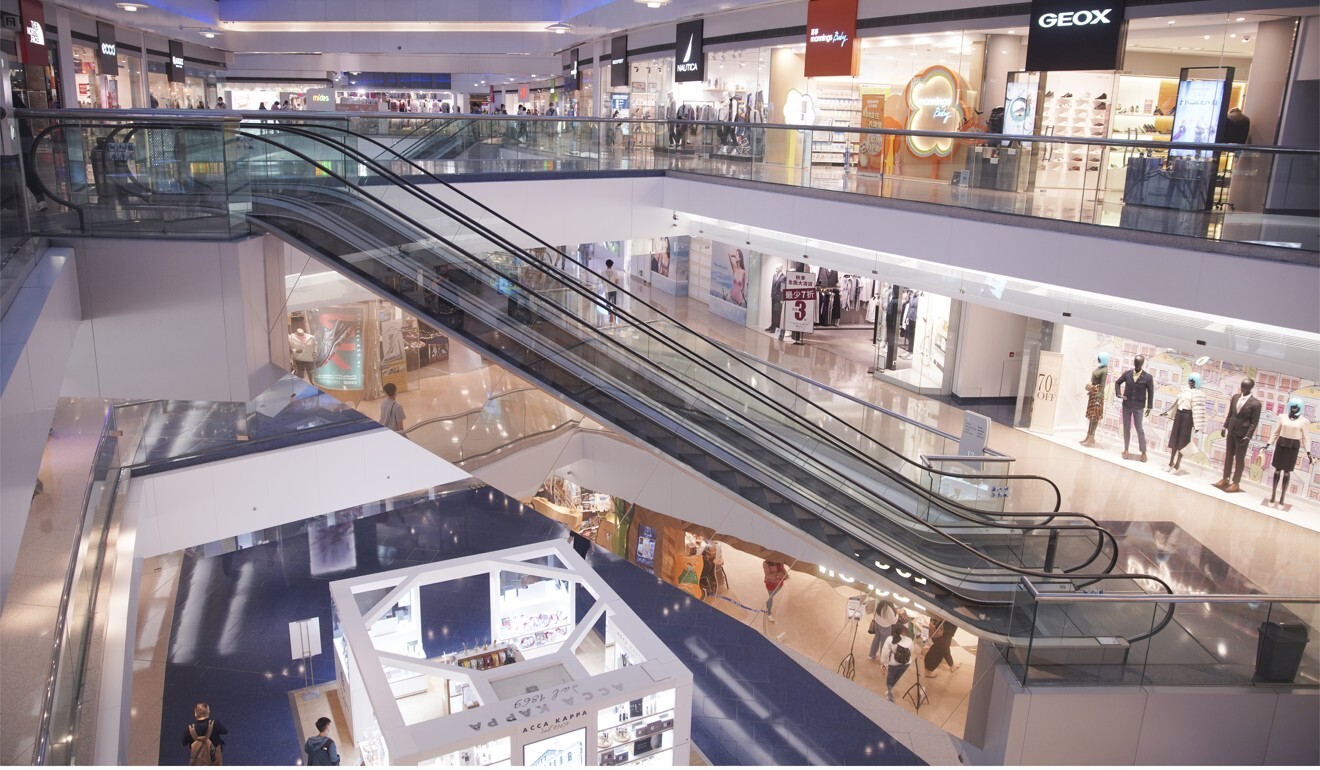
“With Covid-19 showing some improvement in Hong Kong and easing of restrictive measures since late August, we have observed a gradual increase in shopper traffic and tenant sales at Festival Walk,” a spokeswoman for the shopping centre said.
“However, there remains significant uncertainty on when the Covid-19 situation might ease, especially with the onset of winter, and when a more sustained recovery will occur.”
Hong Kong and Singapore have established a travel bubble allowing visitors between them from November 22. But industry observers are not expecting this to have a big impact, as the scheme will allow only up to 200 visitors a day in each direction initially.
Retailers of luxury brands in Tsim Sha Tsui, the IFC Mall in Central and malls in the Causeway Bay shopping district have been hard hit by the absence of foreign visitors, especially mainlanders.
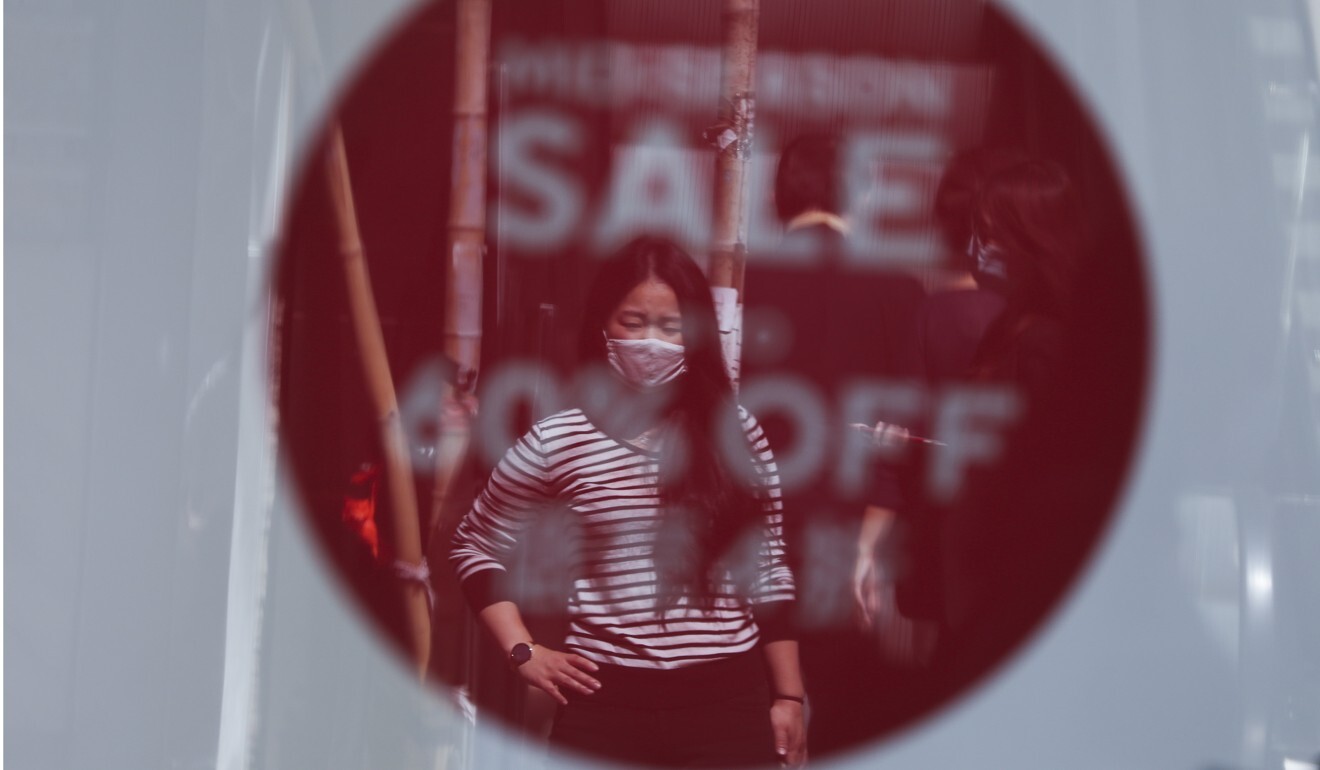
Many an upmarket store has remained empty this year, with staff waiting all day for well-heeled customers who were few and far between.
An industry expert said some luxury stores did not offer steep discounts to protect their brand, but they arranged private events with special offers for their VIP customers who were known to spend HK$1 million or more at a time.
In Causeway Bay, the landmark Sogo department store marked its 35th anniversary amid the gloom of the pandemic, with discounts on thousands of items for more than a month until November 29.
The big sale would be followed immediately by a range of Christmas promotions, a spokesman said.
Among the bargain hunters at Sogo was business consultancy owner Ruby Wan Mei-yuk, who came to do her Christmas shopping early.
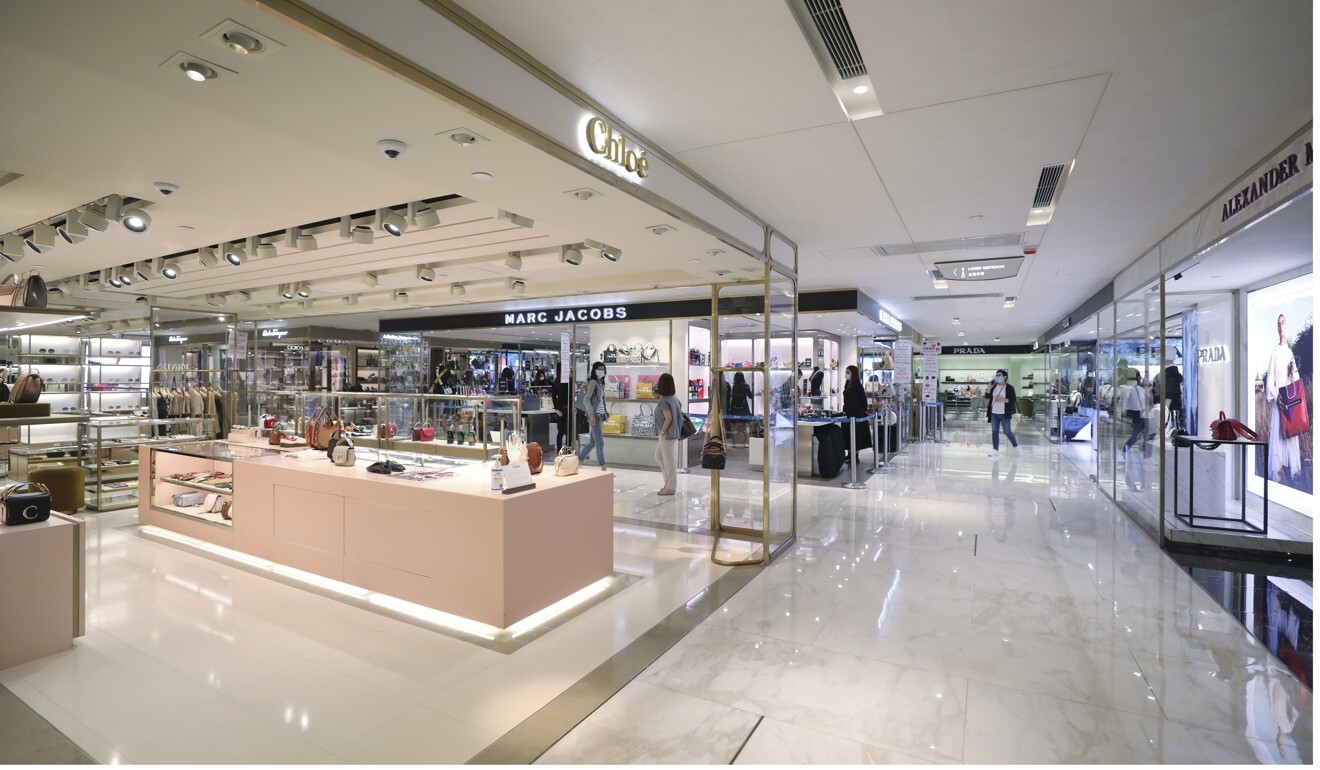
She said she usually spent about HK$40,000 during the festive season, including on gifts for family and friends, and this year’s special deals meant she had been able to get more for her money.
“Prices have come down so much that it is the time to buy,” said Wan, in her 40s, who bought quality wine and sake, as well as a pair of pearl earrings and a necklace that were going at an 80 per cent discount, and shawls.
Unable to resist a silk quilt going for HK$1,000 after a hefty discount on its HK$3,000 price tag, she said: “Prices are so low that I’ve bought some things I normally wouldn’t.”
Developer Sino Group, which operates 14 of Hong Kong’s bigger malls, has just extended a promotion that should have ended last Wednesday to the end of the month following the strong response, according to Andrea Leung, the group’s general manager of leasing marketing and promotions.
‘Stunningly impressive’: virus vaccine success gives world hope
Its campaign included selling HK$50 cash coupons for HK$5.50 apiece, which meant it was practically giving money to customers to use at its malls. A lucky draw it ran from July to September gave away 30,000 prizes and HK$2 million worth of coupons.
The year-end offers have worked to draw many shoppers to the malls, but some Hongkongers are resisting temptation and holding back on spending for now.
Marketing executive Jake Chu, 34, who is married with a toddler, said he had tightened his belt at the urging of his wife, who felt the family needed to save during the recession.
“My job is not safe,” he said. “I can’t remember the last time I went shopping.”
Hopeful that he would head to malls one of these days, he added: “I suspect steeper discounts are yet to come.”




